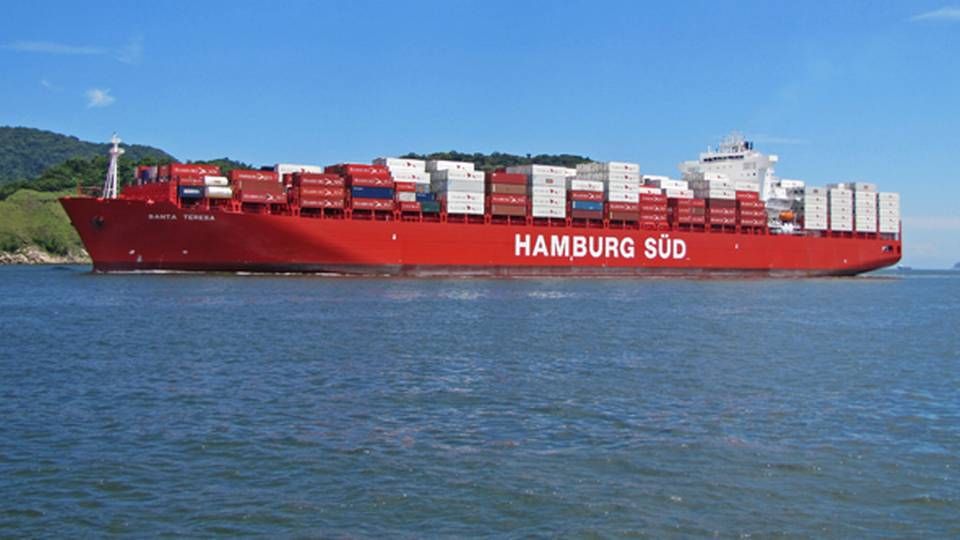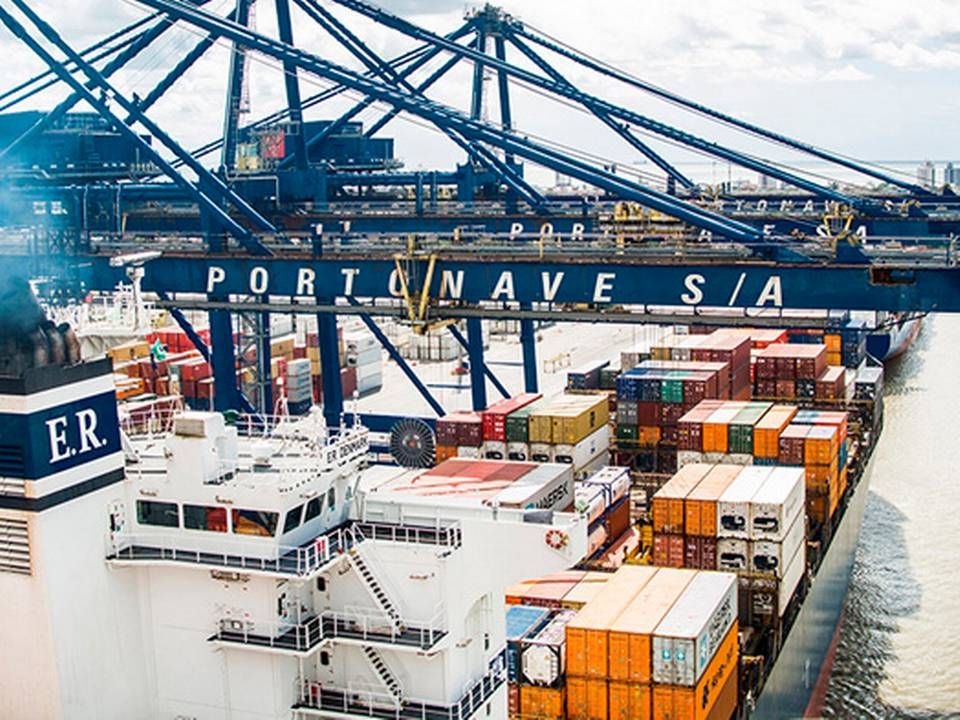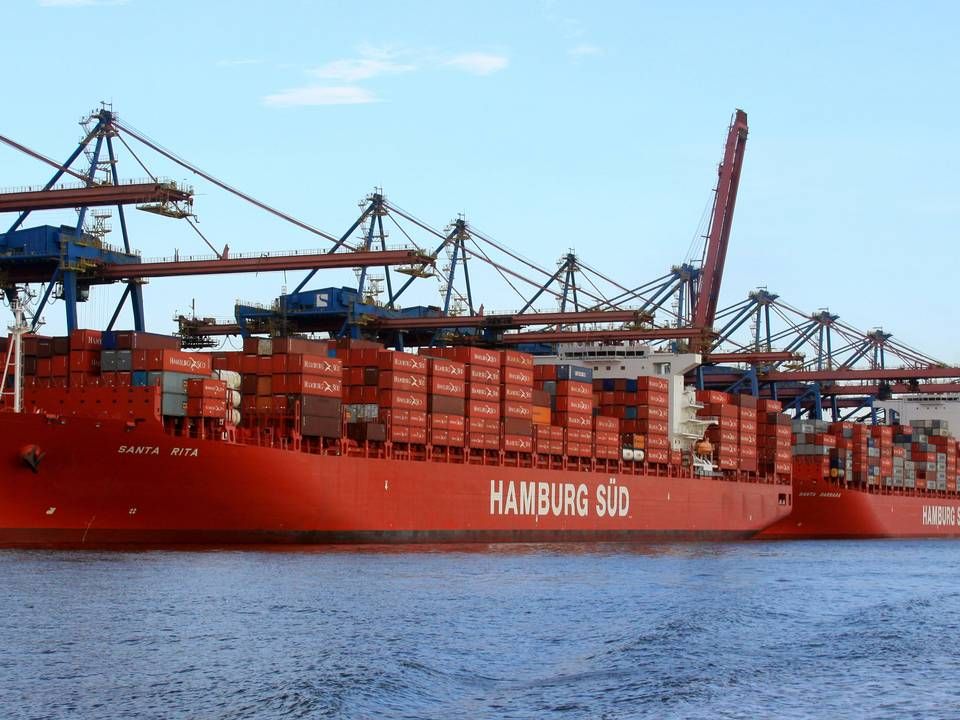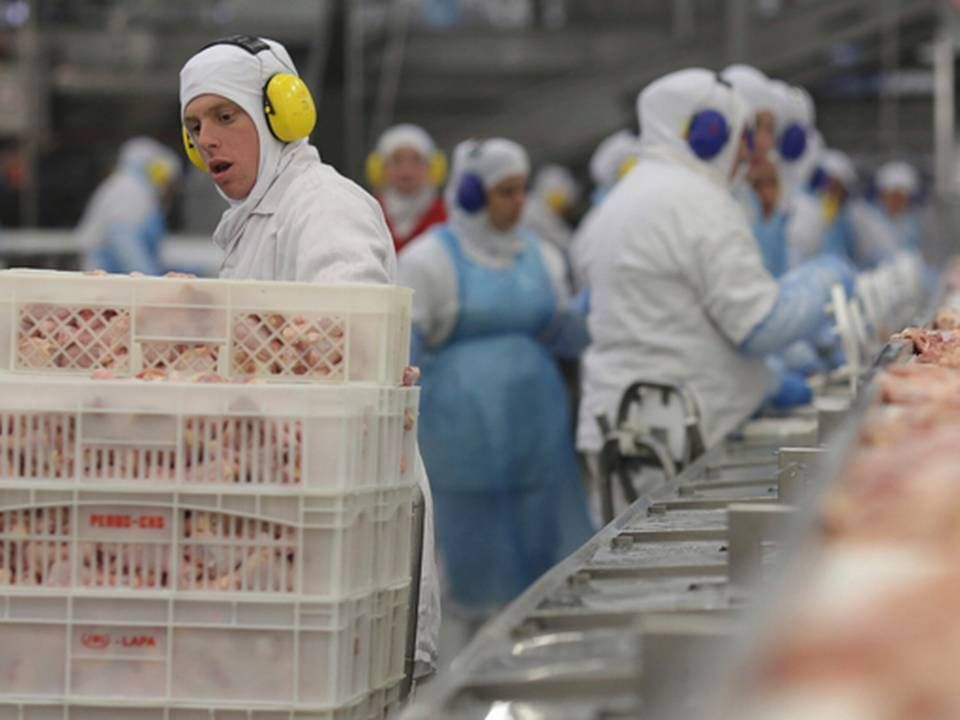Maersk Line's acquisition of Hamburg Süd lacks one crucial approval

More than eight months after the announcement that Maersk Line had acquired Hamburg Süd, the Danish container carrier is awaiting a crucial approval from competition authorities in Brazil.
An approval from Latin America's largest economy along with potential contingencies related to an approval for the takeover could be decisive for the size of profits that Maersk Line can achieve with the Hamburg Süd purchase, a transaction worth USD 4.3 billion.
Hamburg Süd's core business is located in Latin America and focuses especially on transport of fruit and meat in reefer containers from Brazil in particular – one of the world's biggest food exporters – and the South American east coast.
Maersk Line's takeover of Hamburg Süd increases concentration significantly in Brazil, where the two carriers are estimated to control a combined 36 percent of all container freight out of the country.
Swiss MSC, Maersk Line's partner in the 2M alliance, will hold 25 percent of the market, while the merger consisting of Hapag-Lloyd, Chile's CSAV, and Arab UASC will have 16 percent.
MSC gains full control of vital Brazilian reefer port
In other words, three groups of carriers will control container shipping to and from Brazil, and in the reefer market, Maersk Line and Hamburg Süd will likely dominate with a market share of 40 percent.
Maersk: Right on track
The drawn-out approval process in Brazil of the Danish-German container merger has given rise to rumors in the country's shipping circles about whether the federal competition authority CADE could apply several conditions to the acquisition in meetings with Maersk. These conditions would not please the carrier and would make the acquisition more expensive. Maersk Line has already made divestments.
"Things are going according to plan," Maersk Line said in brief comments after selling its Brazilian feeder and cabotage carrier Mercosul Line two months ago to French CMA CGM in order to appease the country's authorities with competition concerns.
Billion-dollar Brazilian exports hit hard by container shortage
Without the divestment of Mercosul, Maersk Line and Hamburg Süd would have held around 80 percent of the Brazilian domestic traffic because Hamburg Süd owns regional carrier Alianca.
Australia and New Zealand
In Australia, the national competition and consumer authority ACCC has allowed the merger to proceed, as the authority sees no significant deterioration of competition conditions as a consequence of the takeover. Shippers in the region are not all pleased.
New Zealand's authorities did not object to the merger either.
Maersk Line and Hamburg Süd will dominate Brazilian reefer market
"We've accepted the decision of the ACCC, but we're still concerned about the consolidation and consequences in the reefer market," says Travis Brooks-Garret, representative for Australia's shippers in the Australian Peak Shippers Association (APSA) in comments to ShippingWatch:
"In Australia, Hamburg Süd is particularly strong in the NZ/Pacific/Americas trade and it is in those areas that concern existed that an acquisition could create an imbalance in our region for certain trades and services. Concerns particularly existed for the East Coast North America reefer trade, where the latest figures submitted to us have that those two lines would account for 41 percent of this trade (according to CTS data), although we have also had alternative estimates submitted to us that are much higher," says Brooks-Garret.
Shippers in Australia and New Zealand have said that the two carriers control a combined 60 percent of the freight market for reefer containers in the region, with Hamburg Süd and Maersk Line as the respective number one and two in the market.
Tighter EU requirements
The EU Commission cleared Maersk Line and Hamburg Süd's merger back in April. One condition for the approval was that the Commission demanded Hamburg Süd withdraw from five vessel sharing agreements (VSA) on a series of trade routes.
Hamburg Süd's forced departure from the VSAs due to the EU requirements corresponds to a total of eight vessels or 11 percent of the carrier's combined capacity, according to Alphaliner. This capacity can continue to sail on the routes in question, but not as part of the consortia.
English Edit: Gretchen Deverell Pedersen
Hapag-Lloyd and Hamburg Süd could lose exclusive rights in South America
Maersk and Hamburg Süd must wait a long time for recovery in Brazil
Billion-dollar Brazilian exports hit hard by container shortage



















